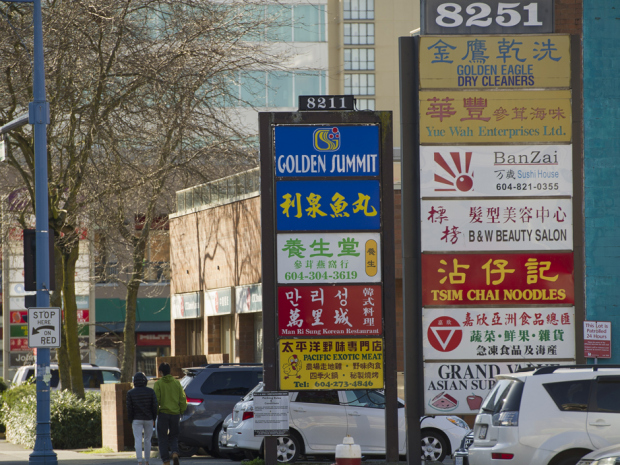With the upcoming Richmond Municipal election, candidates are vying to win everyone’s vote. The issue of banning Chinese-only signs, and “forcing local businesses to advertise in one of Canada’s official languages” seems to be another politician’s tactic to win that vote.

Richmond Chinese-language signs
In class we learnt that it is essential for a business to position itself to a targeted market in order to succeed. And according to Ries and Trout, a brand’s name is perhaps the most important factor affecting perceptions of it. With the Chinese signs appearing in Richmond, I believe it is simply companies positioning their businesses to their targeted Asian market.
I believe that there is not a single business that is capable to cater to every single segment of the market. If this is true then, wouldn’t these businesses preclude some sort of people? For example, if the target customers for a Chinese herb store are Asian consumers, does that signify that other races are not welcomed in their shops? No, it does not. Why should we conduct businesses by simply targeting a particular segment only? If the chosen segment excludes certain people, it does not indicate that the business is discriminating, it simply means that they are not in their target market.
In a country that boasts multiculturalism and inclusion, this appears more to be forced assimilation and bullying than anything else.
http://www.quickmba.com/marketing/ries-trout/positioning/
images: http://i0.huffpost.com/gen/1041178/thumbs/r-CHINESE-SIGNS-large570.jpg
